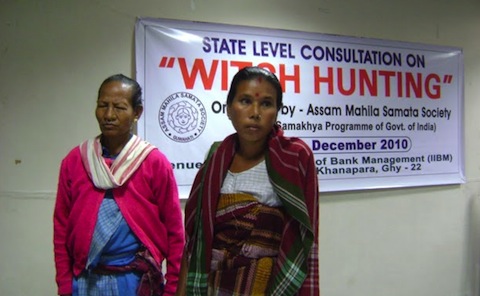
So far this year, Microkhan’s coverage of sorcery-related violence has focused primarily on Papua New Guinea, where efforts at legal reform have done little to reduce the bloodshed. Now comes word that my beloved Assam, one of the primary settings for my first book, is dealing with a similarly tragic wave of killings. The latest incident on one of the Indian state’s tea plantations pushed this year’s death toll to at least 18, with several of the victims under the age of 12. Perhaps even more so than their compatriots in Papua New Guinea, Assamese authorities are struggling to devise a way to cope with the epidemic:
Many police officers feel that the State should have a special legislation to deal with the menace of witch hunting. Police sources pointed out that at present, the witch hunting cases are registered as normal murder cases and it is difficult to go for proper documentation of such cases. Moreover, when a whole village is involved in a case, it is difficult to pinpoint the main culprit and it is almost impossible to collect evidence as no one comes forward to testify against anyone. Several other States including Bihar and Jharkhand have already enacted special legislation to deal with witch hunting and it is high time Assam also makes such legislation in the face of spurt in such cases.
The bolded point is key, as most of these attacks do seem to be cases of collective violence. As pointed out here, the slayings are often sparked not by genuine concern over sorcery, but by disputes over property or romantic jealousy. If one of the parties in such a dispute is cynical enough, he can settle the matter by accusing his adversary of black magic, thereby getting his superstitious fellow villagers to take his side and settle the matter through violence. No one tattles because to do so would be to destroy the entire village, since everyone is partially culpable in the killings.
The Assam Police are doing their best by reviving a targeted education campaign called Project Parhari, which aims to disabuse villagers of the notion that malicious sorcery is real. But government representatives can only spend so much time in each settlement, spreading their message of reason. Perhaps the better long-term solution is to provide villagers with better means of dispute resolution—and to ensure that justice is swift and certain when killings do occur, even if it means carting off every single participant.
(Image via TwoCircles.net)


Like gas stations in rural Texas after 10 pm, comments are closed.